Moroccan influences and materials create an “urban oasis” at this restaurant in Los Angeles, which owners Maati Zoutina and Boris Macquin designed and built themselves.
Situated in the Lincoln Heights neighbourhood, Zizou is a venture by two friends – a sound designer and an architect – who combined their skills and knowledge to bring their joint vision to life.
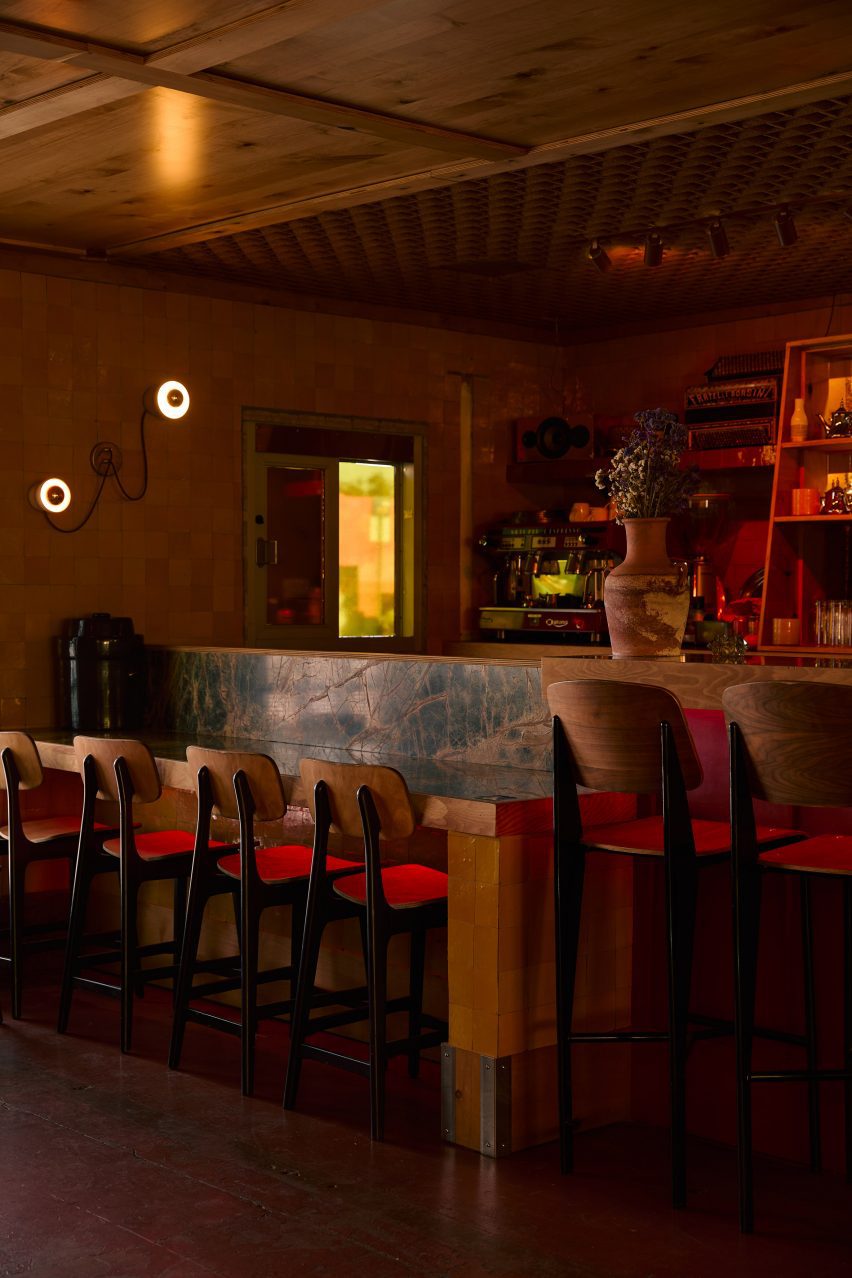
The pair found an abandoned former restaurant that they planned to renovate, but the building did not have the required permits and had to be entirely demolished.
“We discovered this place by accident but immediately fell in love with the genius loci of it,” the duo told Dezeen. “Our goal was to recreate the same atmosphere that we originally felt in this vacated building.”
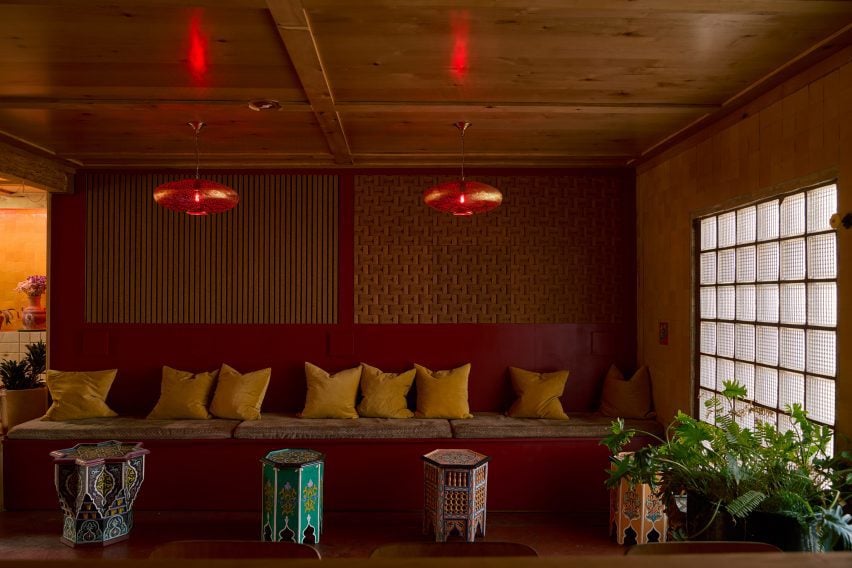
They decided to keep the same footprint, height and general layout of the original building, then develop the interior concept around music.
While waiting for permits during the Covid-19 pandemic, Zoutina and Macquin began designing the speakers that would eventually be installed in the space.
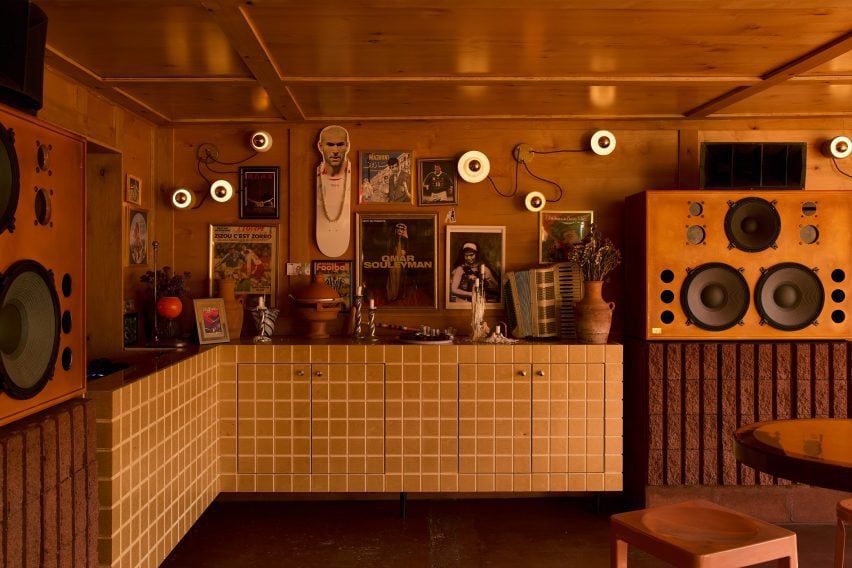
The pair then landed of a Moroccan-influenced aesthetic that dictated the mood throughout the interior and exterior spaces, as well as the materials and furniture pieces – many of which were recycled or repurposed.
“While aiming to respect the original charm of the space, we decided to develop our project around the music and the conviviality, two aspects that are often put aside in restaurants here in Los Angeles,” they said.
“We wanted to create an urban oasis tucked away from the noisy street and inspired by Moroccan riads.”
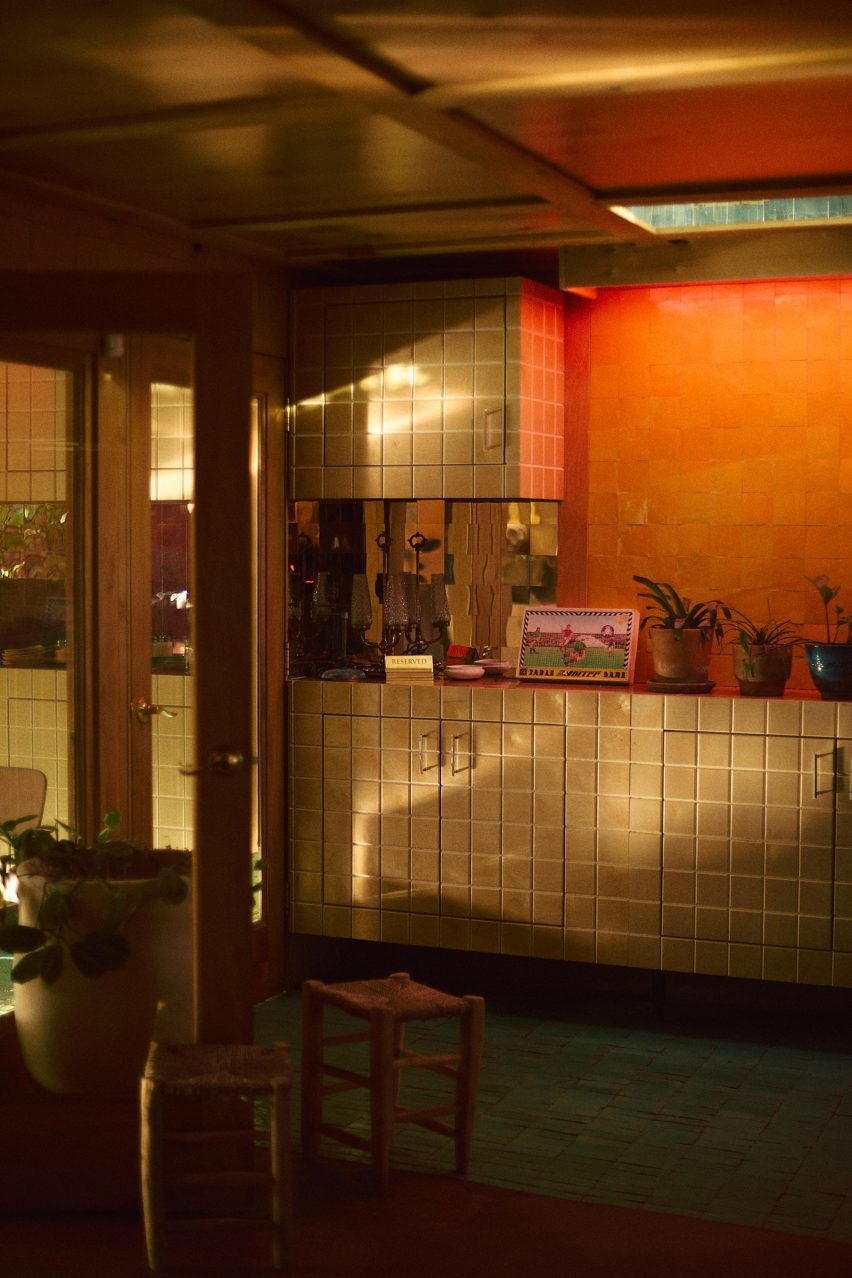
Taking their time, Zoutina and Macquin sourced materials and experimented with design choices and products, creating their own lamps, surfaces and other items to populate the space.
“Our budget for this project was extremely low, however, our strength was that we had time and that we both knew how to build,” they said.
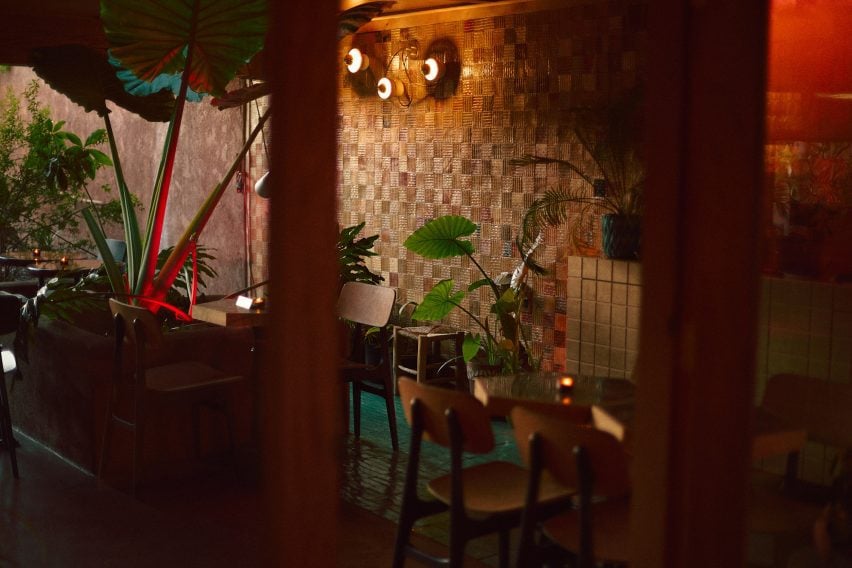
Inside Zizou, the vibe is warm and cosy, with plenty of natural light flowing into the dining area through the large opening to the patio.
A variety of yellow, green and red zellige tiles with various patterns and textures – all hand-selected in Morocco and shipped over with other decor items – are installed without grout across large areas of the walls and floor.
Cabinets and counters are also tiled, while podiums that support the large wooden speakers are formed from vertical straight-stack bricks.
Outside, a terracotta-toned planter was built around the perimeter with a stepped form so it could also be used for seating.
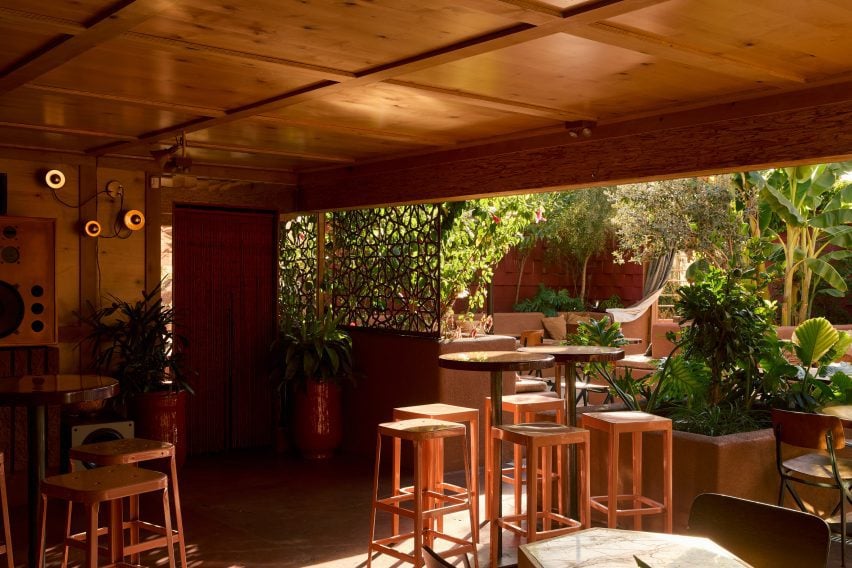
Foliage covers the tall boundary wall, which is integrated with glass bricks that are also used in the darker, atmospheric bar area.
Mid-century-style chairs and stools contrast highly decorative and colourful Moroccan tables.
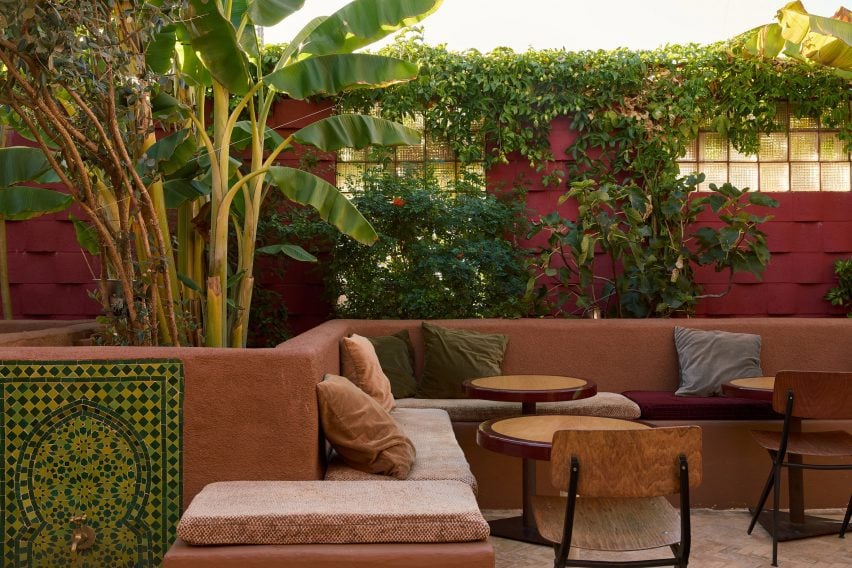
“Being able to work all craftmanship elements ourselves has been our main ally in order to create an organic result; something beautiful, laid-back and not pretentious,” Zoutina and Macquin said.
Other recent additions to the ever-evolving restaurant scene in Los Angeles include Holy Basil Market, a tiny Thai eatery designed by Weiszblüth & Brown, and Uchi West Hollywood, in which ORA utilised the city’s fallen street trees.
The photography is by Jordan DeGaetano.

